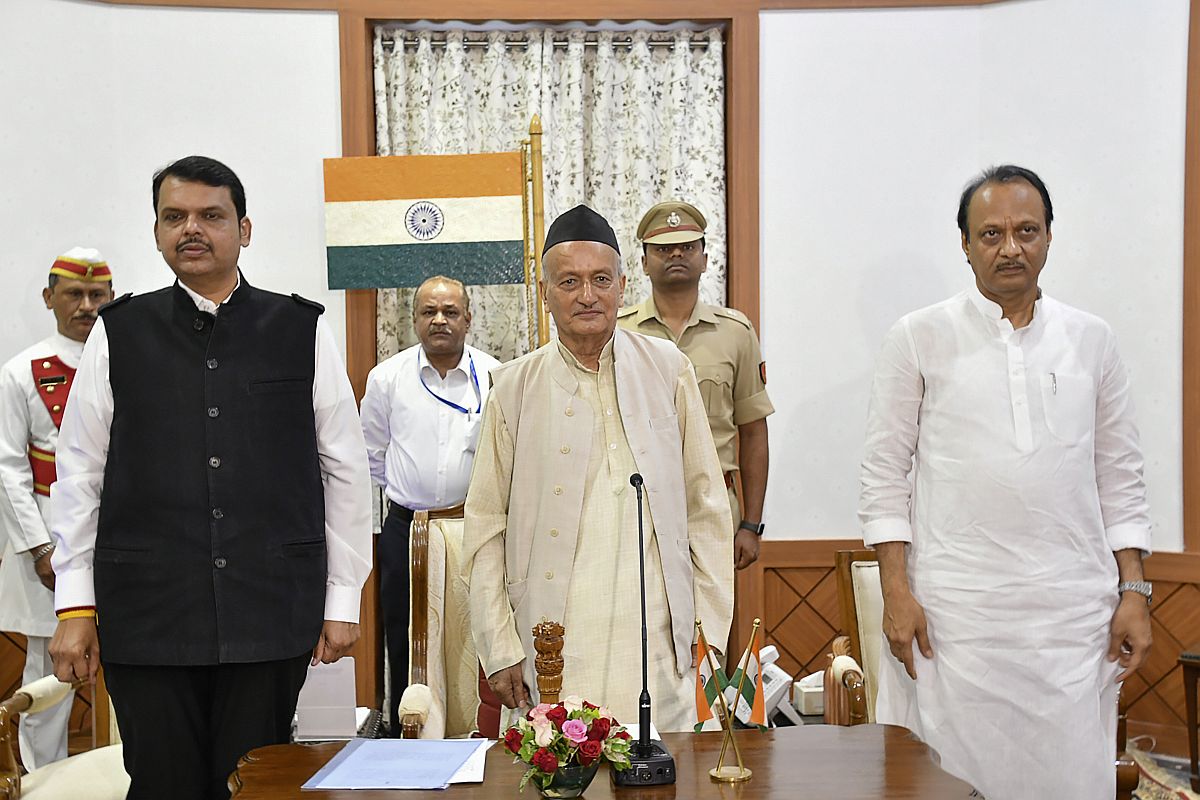After hearing NCP-Congress and Shiv Sena’s plea on “illegal” government formation in Maharashtra, Supreme Court on Sunday directed the Centre to produce the letters submitted by Chief Minister Devendra Fadnavis to Maharashtra Governor Bharat Koshyari, claiming support of the MLAs and thereby staking claim to form the government and adjourned the hearing for 10.30 am on Monday.
NDTV reports, the petition filed by the NCP-Congress-Shiv Sena alliance read, “The Hon’ble Governor has acted in a partisan manner and has made a mockery of the high office of the Governor… the Governor’s actions between the intervening night of 22.11.2019 and 23.11.2019 culminating to the swearing in on the 23.11.2019 are a text book example of the Governor acting at the behest of a political party in power at the Centre.”
Advertisement
According to The Indian Express, Maharashtra BJP, advocate Mukul Rohatgi said, “There are some things that are with the President which are not even open to judicial intervention. There is no need for the court to pass the order today. There was no illegality in the Governor’s decision. The court should not pass the order to fix the date of the floor test. The three parties here have no fundamental rights. Can the court order the Governor to advance the floor test? The petition is without annexures, they don’t know anything, they were sleeping for three weeks. There is no supporting document to their claims.”











